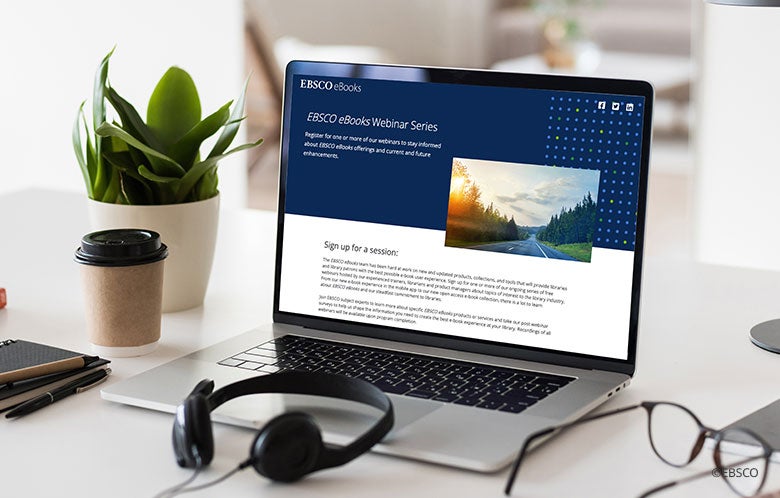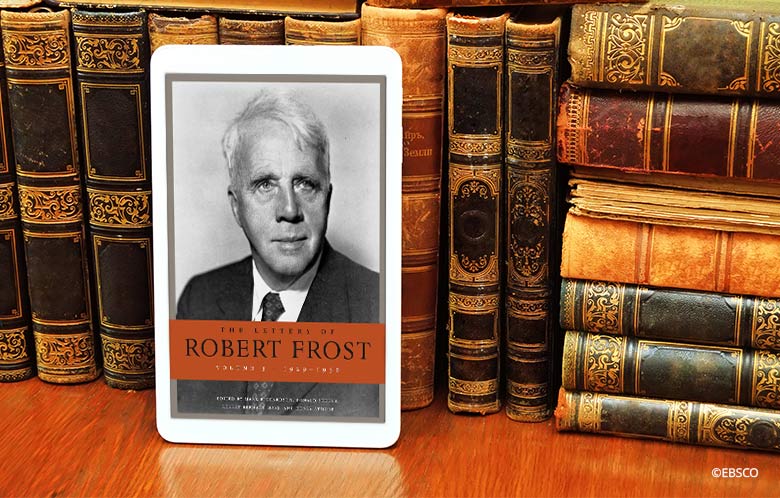When it comes to e-book accessibility, it takes a village to ultimately ensure that the digital reading experience is accessible to everyone. It starts with the author and publisher and continues on the e-book platform, but it doesn’t end there. Organizations outside of the actual publishing process are critical to the overall process to ensure that publishers and information providers are open and honest about the accessibility of their products. This helps end-users get the most out of their experience, helps hold publishers and information providers accountable for their commitment to accessibility and offers concrete ways to improve. These organizations also provide libraries with a way to evaluate content to bring the best possible experience to students, faculty, and library patrons.
ASPIRE is a service developed by textBOX and McNaught Consultancy that helps publishers and platforms tell their story and present a transparent position on the accessibility of their content and user interface. ASPIRE encourages publishers to be upfront about their position and discuss the strengths of their platforms, but also address the challenges and describe the steps they are taking to improve any limitations, as well as offer guidance on how to use the platform even with those challenges. ASPIRE directs platforms to be upfront about limitations and provide tips and workarounds instead of papering over them so that users can accomplish their tasks efficiently. Creating a high-quality accessibility statement requires their product teams to be very familiar with how users leverage assistive technology, and how it works or doesn’t work with their products. ASPIRE’s template ensures that all types of user needs are accounted for and documented. ASPIRE is a free resource for librarians and provides a list that ranks publishing platforms based on the transparency of their accessibility statements.
One of the services ASPIRE offers is the ASPIREverified Accessibility Audit. ASPIREverified is the first verification service for accessibility statements in the publishing industry. This service helps create a transparent environment for content and platforms by reviewing, scoring, and verifying the accessibility statements of publishers and vendors. Their efforts aim to promote accessibility by encouraging publishers and platform providers to supply clear communications to customers and to continue to improve transparency surrounding their products.
The original ASPIRE project, conducted in 2018, evaluated a wide range of publishers/aggregators through a crowdsourced approach. Providers can now request to be reviewed at any time and once they are reviewed the ASPIRElist reflects their score. Librarians can then use the reviews to evaluate platforms and publishers as part of their procurement process.
In 2019, EBSCO received a Gold score of 85 percent in the ASPIREverified audit. EBSCO has proven its dedication to improving the user experience by not only increasing its score by 15 percentage points, but also by becoming the first platform or publisher to achieve a maximum score.
Since the inception of the ASPIRE project EBSCO have been a gold-rated vendor and they continue to develop their platform to meet the accessibility needs of their whole audience. The EBSCO statement is well-structured, comprehensive, and, most of all, user focused. It tells the story of EBSCO’s commitment to accessibility and thoroughly deserves its 100% ASPIREscore.
Since the inception of the ASPIRE project EBSCO have been a gold-rated vendor and they continue to develop their platform to meet the accessibility needs of their whole audience. The EBSCO statement is well-structured, comprehensive, and, most of all, user focused. It tells the story of EBSCO’s commitment to accessibility and thoroughly deserves its 100% ASPIREscore.
Since 2019, EBSCO eBooks has maintained a 100 percent score and top ranking in the ASPIREverified Accessibility Audit and recently acquired another Gold ASPIREscore for 2023.
“EBSCO values the feedback from ASPIRE as it improves the quality and depth of the information in our accessibility statement. We want our statement to help end users and librarians, so it must reflect how our product operates in the ever-changing technology landscape. ASPIRE’s expert guidance is a key part of ensuring we stay up to date and consider new ways to support all users’ needs.”
“EBSCO values the feedback from ASPIRE as it improves the quality and depth of the information in our accessibility statement. We want our statement to help end users and librarians, so it must reflect how our product operates in the ever-changing technology landscape. ASPIRE’s expert guidance is a key part of ensuring we stay up to date and consider new ways to support all users’ needs.”
Strength in Numbers — Additional Partners in Accessibility
In addition to participating in the ASPIRE audit, EBSCO partners with Benetech, a nonprofit organization that supports and helps to advance technology for the benefit of social good. They offer a variety of different programs around social justice, the largest being their global literacy program. EBSCO works with Benetech to understand how publishers can optimize the accessibility of their files, and it directs publishers to Benetech for education and partnership to advance accessibility. We also work to promote publishers making a commitment to accessibility so that librarians may choose to support them.
As an aggregator of information and an advocate for the EPUB format, EBSCO works with publishers to help them identify weaknesses in their files and promote those producing truly accessible e-books. Recently, EBSCO started including the Benetech GCA badge (Global Certified Accessible) on our website to help libraries and e-book buyers identify certified publishers and make better informed purchasing decisions. EBSCO also built a custom validation tool (leveraging Ace, by DAISY) to test the accessibility of all the EPUB files we receive. EBSCO has aggregated the results of this testing to identify publishers who are submitting WCAG-compliant titles to EBSCO. Visit our website to see all GCA certified publishers that partner with EBSCO and WCAG-compliant publishers that partner with EBSCO.
In November 2021, EBSCO partnered with the University of Michigan Press (one of the first publishers to achieve Benetech GCA certification) and presented a webinar on the topic of accessibility. Jonathan McGlone, Front End Developer and UI Designer for the University of Michigan Library, teamed up with Emma Waecker, Director of Product Management for EBSCO eBooks, and discussed the GCA certification process and how their organizations are working toward creating the most user-friendly and accessible e-book experience possible for libraries and researchers.
EBSCO partners with Deque to perform testing that ensures the advancement toward WCAG 2.1AA compliance. EBSCO is also an Inclusive Publishing Partner of the DAISY Consortium. DAISY has provided a series of recommendations on EBSCO EPUB content as well as educating publishers and encouraging them to adopt page numbers in the EPUB Specification.
We also recently produced a short video featuring a member of the EBSCO collection development team discussing accessibility from an e-books perspective. View video.



